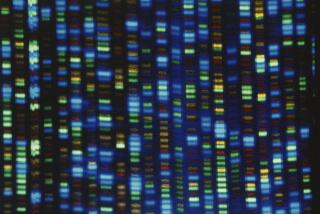African Americans, USC Heart Researchers Need You
- Share via
Despite a decree from the National Institutes of Health that women and minorities are to be included in medical studies whenever possible, researchers struggle to reach some of their recruiting goals.
Such is the case now at the USC School of Medicine. Despite having received a prestigious NIH grant to study a possible method to reduce heart attacks and strokes in people ages 35 to 59, researchers are not having much success attracting African Americans to participate.
The struggle is particularly dismaying to these scientists because the incidence of heart attack and stroke is much higher in African Americans in this age group than among other ethnic groups.
The study, directed by associate professor James H. Dwyer, involves using ultrasound--a safe and painless procedure--to measure thickening or blockage in the carotid artery. If this thickening, called atherosclerosis, is found, participants would be assigned to one of several treatment options: vitamin C, vitamin E, both vitamins or a harmless placebo pill. The goal of the study is to see whether these vitamins are effective at reversing blockage in the arteries, thus reducing the chance of having a heart attack or stroke.
“The importance of our study is that we’re dealing with people 10, 15 or 20 years before they have a heart attack to see if the vitamins can turn the disease process around,” Dwyer says.
Researchers are looking for about 1,400 African Americans, both men and women, to undergo the ultrasound screen.
About 10% would then be asked to participate in the 30-month study. Examinations would be conducted on about four occasions; researchers will travel in a mobile medical unit to different sites to make it easy for people to participate.
As a group, African Americans have long been hesitant to participate in government-funded studies. And this summer’s unproven rumors that the Central Intelligence Agency was involved in the introduction of crack cocaine to Central Los Angeles in the 1980s may have further alienated some blacks from getting involved in such research projects, Dwyer says.
“African Americans have been misused in research in the past, so the reticence is understandable. But I think we can convince people that this study is safe,” he says.
* For more information or to volunteer for the study, call toll-free: (888) 60-HEART.






